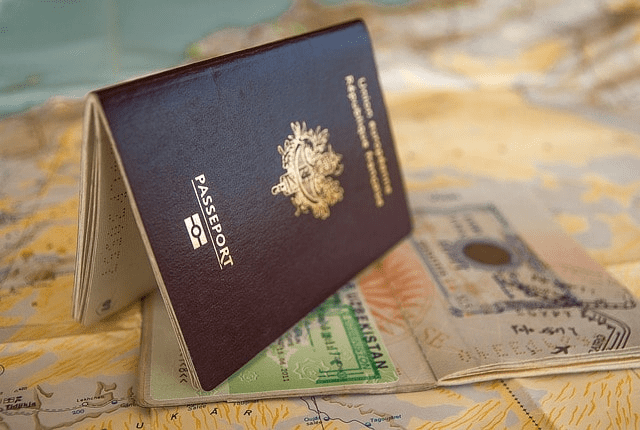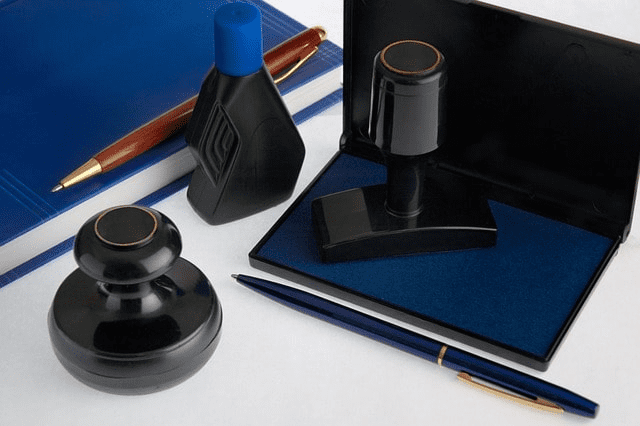Are you up for moving to the Netherlands for work? For working and living in the Netherlands, foreign citizens will most likely need to obtain a work visa or permit. To work in the Netherlands, a non-EU national must have a valid work permit. The employee or their potential employer may request the permit, though employers typically do so.
A working permit visa for the Netherlands is only valid for the employer who requests it, and it expires if and when the employee quits.
This article dives into everything you need to know about obtaining a work visa in Holland. We’ll cover the different types of visas, eligibility requirements, and the application process, so you can navigate the path to your dream job in the Netherlands with confidence.
Who Needs to Obtain a Working Visa in the Netherlands?
A vital factor in securing a separate work visa is a concrete job offer from a Dutch employer. The employer typically initiates the application process. This way you are eligible for a sponsorship visa in the Netherlands. This highlights the importance of finding a suitable position before moving to the Netherlands.
Not everyone requires a work permit to work in the Netherlands. There is a lot of difference for EU and non-EU citizens, as well as for UK citizens post-Brexit.
EU citizens (EFTA Nationals)
Citizens of the European Union (EU) and European Free Trade Association (EFTA) countries enjoy the freedom to live and work in the Netherlands without requiring a visa or residence permits.
A valid ID is sufficient for entry. Keep in mind that if your stay exceeds three months, registering with your local authority is mandatory. This registration provides you with a Citizen Service Number (BSN), essential for various administrative tasks like opening a bank account.
Non-EU citizens (EFTA Nationals)
Individuals from countries outside the EU and EFTA typically need a separate working visa or residence permit to work in the Netherlands. While foreign citizens of certain countries, such as Australia, Japan, and the United States, can visit for up to 90 days visa-free, employment during this period necessitates a work permit for the employer. For longer stays, a residence permit is required.
Applying for a residence permit and working visa in the Netherlands before travelling is required if you are a citizen of a nation where entry is prohibited without a visa.
UK citizens Post-Brexit
The UK’s departure from the EU in 2021 introduced immigration controls for British citizens. While visa-free travel is permitted for up to 90 days, work beyond this period demands a Dutch residence permit. Similar to non-EU nationals, UK citizens looking to work in the Netherlands during a short stay require their employer to obtain a work permit.
General Eligibility Requirement for Obtaining a Dutch Work Permit
The specific eligibility requirements for a Dutch work visa depend on several factors, including your nationality, the type of work you will be doing, and your qualifications. However, there are some general criteria that apply to most work visa applicants.
- Valid job offer – You must have a binding job offer from a Dutch employer.
- Sufficient qualifications – Your education or work experience should match the requirements of the job.
- Financial stability – You need to prove that you can support yourself financially during your stay in the Netherlands.
- Good health – You might need to undergo a medical examination.
- No criminal record – A clean criminal record is usually required.
If you are a citizen of an EU/EEA country or Switzerland, you generally don’t need a work permit. Keep in mind that depending on the job, you might need to demonstrate proficiency in Dutch.
What Are the Types of Work Visas in the Netherlands?
Navigating the Dutch visa system can be complex, but understanding the primary categories is essential. There are three main types of working visas in Holland:
- short-term
- long-term
- and temporary.
Short-Term Work Visa
Intended for employment periods of less than 90 days, the short-term work visa requires an employer to apply for a work permit on your behalf. This visa is suitable for seasonal work or short-term projects.
The application process involves the employer submitting the necessary documents to the Dutch Immigration Services visa application center, including a job offer, labour market test results, and details about the foreign worker.
The cost of obtaining a TWV varies based on factors such as the employee’s nationality and the nature of the work.
Long-Term Work Visa
For employment exceeding 90 days, a long-term work visa is necessary. This visa is often referred to as a Combined Permit for Residence and Employment. It allows both a Dutch residence permit and a work permit.
The Netherlands offers several long-stay work visa options to cater to different employment circumstances:
- General Work Visa – This is the most common work permit for individuals seeking employment in the Netherlands. Valid for up to three years, it can be renewed, typically for a maximum of five years.
- Highly Skilled Migrant Visa – These work permits are specifically intended for foreign citizens. Designed for highly skilled migrants and professionals in high-demand positions, this visa requires a minimum salary and is valid for five years.
- European Blue Card – This visa is specifically for highly skilled migrants who are EU blue card holders and offers the advantage of mobility within the EU/EFTA countries. It has a validity of four years and can be renewed.
- Intra Corporate Transfer Visa – Intended for employees transferring within a multinational company, this visa is valid for three years (or one year for trainees).
- Researcher Visa – For individuals engaged in academic or professional research, this visa has a validity of five years.
Each visa type has specific eligibility criteria and application processes. It’s essential to choose the visa that best aligns with your employment situation.
The employer starts the application process by submitting a similar set of documents as for the short-term visa. The foreign worker will then need to apply for a residence permit (MVV) at the Dutch embassy or consulate in their own country.
The cost of the GVVA typically includes both the work permit and residence permit fees.
Temporary Dutch Visas
Beyond the standard short-term and long-term visas, there are specific visa categories tailored to particular circumstances. The Netherlands offers several visa options for temporary employment for foreign citizens:
- Seasonal Worker Visa – Designed for foreign workers working in the Dutch agricultural sector, this visa has a maximum duration of six months.
- Working Holiday Visa – Aimed at young people aged 18-30 from specific countries, this visa allows for travel and work in the Netherlands for up to one year.
- Au Pair Visa – For young adults aged 18-30 seeking cultural exchange and childcare experience, this visa permits working as an au pair in a Dutch household for up to one year.
These visas are suitable for short-term stays and specific types of employment.
Each of these work permit visas for the Netherlands has its own specific requirements, application procedures, and costs.
It’s essential to research the visa that best aligns with your individual situation to ensure a smooth application process.
Note that the visa regulations can change, so it’s advisable to consult the official website of the Dutch Immigration and Naturalisation Service (IND) for the most up-to-date information.
Other Types of Work Visas
It’s important to note that the Netherlands offers a variety of visa options for foreign citizens beyond employment. These include:
- Student Visas – For individuals pursuing studies, or scientific research at Dutch educational institutions. Students with a Dutch study visa can work part-time during the academic year (maximum 16 hours per week) and full-time during the summer months (June, July, and August) if their visa includes a TWV sticker. Non-EU/EFTA students require a TWV for their employer. After completing studies, students can apply for an orientation year visa to seek employment, start a business, or work as freelancers.
- Family Member Visas – For spouses, partners, and dependent children of Dutch residents or permit holders. Family members require their own visa or residence permit and generally have the same work rights as the primary visa holder. EU/EFTA citizen’s family members can move freely to the Netherlands without a visa, but must register with local authorities.
- Self-Employed Individuals, Freelance, and Entrepreneurial Visas – Individuals aiming to start a business, self employment, or work as freelancers in the Netherlands can apply for a self-employed visa. This two-year visa is renewable based on business success. Candidates must present a strong business plan, relevant experience, and a business idea that will benefit the Dutch economy in order to be accepted. US citizens may qualify for the Dutch American Friendship Treaty (DAFT) visa, offering a two-year residence permit for entrepreneurship, extendable for five years.
- Volunteer Visas – For foreign workers engaging in unpaid volunteer work. Several visa options exist for volunteering or work experience in the Netherlands. Schengen short-stay business visa (up to 90 days), cultural exchange visa (for 18-30 year olds, up to one year of voluntary work), work experience visa (for trainees or apprentices, up to one year), or Working Holiday Programme (WHP) visa (for 18-30 year olds from specific countries, up to one year).
Each work permit type has distinct eligibility criteria, application procedures, and requirements. If you’re considering a visa option other than employment, it’s crucial to research the specific regulations and guidelines.
What do I Need to Apply for the Dutch Work Permit?

Obtaining a Netherlands work visa can be complex, as it involves multiple steps and parties. Your nationality, the type of work you’ll be doing, and the position of your employer all play a major role in it. The process can take time, so begin your application well in advance.
Short-Stay Work Permit (TWV)
For employees with short-term assignments in the Netherlands, the employer is solely responsible for applying for a Temporary Work Permit (TWV). The employee must hold a valid short-stay visa, allowing a stay of up to 90 days.
You’ll typically need a Schengen short-stay business visa. You should apply for this visa at the Dutch embassy or consulate in your home country. To apply for the Schengen visa, you’ll need to provide:
- A valid passport or travel ID.
- Two recent passport photos.
- Proof of financial means (approximately €55 per day).
- Health insurance covering your stay.
- Confirmed accommodation for your entire visit.
- A job offer from your Dutch employer.
- A return flight ticket confirming your departure from the Netherlands.
The visa application process usually takes about 15 days. If approved, you’ll collect your visa from the embassy or consulate.
Long-Stay Work and Residence Permit (GVVA)
Foreign citizens, both EU and non-EU, planning to work in the Netherlands for more than three months require a Combined Residence and Employment Permit (GVVA).
While either the employer or employee can initiate the application, it’s generally recommended that the employer handle the entire process through the Immigration and Naturalisation Service (IND).
The application procedure depends on the type of visa and your country of origin. If you require an MVV to enter the Netherlands, you should apply through the Dutch embassy or consulate in your home country. For au pair visas, the au pair agency is responsible for the application process.
While your employer must obtain a work permit (TWV) from the UWV, you will need a residence permit from the IND. In the case of seasonal work, a combined permit for residence and work (GVVA) is required, which the employer applies for through the IND.
To apply for a GVVA, the following documents are typically required:
- Valid passport
- Employment contract
- MVV application (if applicable)
- Clean criminal record
- Passport photos
- Health insurance
- Tuberculosis test (if required)
- Proof of sufficient income
- CV or qualifications
- Employer recognition by the Dutch government
All documents must be notarized and translated into Dutch, English, French, or German. The application process can take up to 90 days. Remember, non-compliance with Dutch immigration laws can result in severe penalties, including business bans. Employers must ensure all procedures are followed correctly.
How To Get A Work Permit in the Netherlands
Typically, it’s your employer who initiates the work visa process in the Netherlands and acts as a sponsor. They will apply for a work permit on your behalf. However, there are specific circumstances where you might need to apply for an entry visa before arriving in the Netherlands. Key steps involved:
- Job Offer – You need a valid job offer from a Dutch employer.
- Work Permit – Your employer applies for a work permit from the Netherlands Employees Insurance Agency (UWV).
- Residence Permit – Your employer can apply for a residence permit simultaneously with the work permit. The application is submitted to the Immigration and Naturalisation Service (IND).
- Single Permit – If the residence permit is granted, you will receive a Single Permit, which combines both the work and residence permits.
- Entry Visa (if required) – Depending on your nationality, you might need an entry visa before travelling to the Netherlands. This is usually obtained from the Dutch embassy or consulate in your home country.
Important Considerations
- EU/EEA Citizens – If you’re a citizen of an EU/EEA country or Switzerland, you generally don’t need a work permit.
- Highly Skilled Workers – You might qualify for a faster track if you meet specific criteria for highly skilled workers.
- Language Proficiency – Depending on the job, you might need to demonstrate proficiency in Dutch.
- Financial Requirements – You might need to prove that you can support yourself financially while in the Netherlands.
Employer and Employee Responsibilities
The process of obtaining a work permit in the Netherlands involves shared responsibilities between the employer and employee.
The employer typically takes the lead in the application process, including obtaining the necessary work permit (TWV) or combined permit (GVVA). Employer obligations for work permits involves submitting the required documentation, such as the employment contract, job description, and proof of the company’s financial stability.
The employer is also responsible for ensuring compliance with Dutch labour laws and providing the employee with essential information about the work permit process. They also bear the financial burden of the application fees.
On the other hand, the foreign employee has a primary responsibility to provide accurate and complete personal information, supporting documents such as educational certificates, and medical certificates if required.
They may also need to attend interviews or biometric appointments as part of the application process. Effective communication and cooperation between the employer and employee are essential for a successful application.
Required Documents and Processing Times
The specific documents required for a work permit application in the Netherlands can vary depending on the applicant’s nationality and the type of visa. However, there are some general documents that are commonly needed for both EU and non-EU citizens.
| Applicant | Required Docmunets |
| EU residents |
|
| Non-EU residents |
|
Note that additional documents may be required based on individual circumstances.
Processing Times
Time for process your Netherlands work permit application can vary significantly depending on the type of visa, the time of year, and the workload of the immigration authorities. Generally, it’s advisable to allow several weeks for processing.
It’s crucial to submit a complete application with all required documents to avoid delays. Additionally, consider applying well in advance of your intended start date to allow sufficient time for the application process.
Final Thoughts
Obtaining a work visa for the Netherlands involves several factors, including your nationality, the type of work, and your employer’s role. Key steps often include securing a work permit and a residence permit.
While this guide provides essential information, it’s crucial to consult official government resources for the most accurate and up-to-date guidance. Immigration laws and regulations can change, and specific requirements may vary.
To start your journey in the Netherlands, we invite you to explore available job offers in the Netherlands and get ready for a fast and smooth relocation!

 English
English  Lietuvių
Lietuvių  Latviešu
Latviešu  Polski
Polski  Português
Português  Română
Română  Slovenčina
Slovenčina  Magyar
Magyar  Русский
Русский  Espanol
Espanol  България
България  Čeština
Čeština  Italy
Italy  Croatia
Croatia  Greek
Greek 

